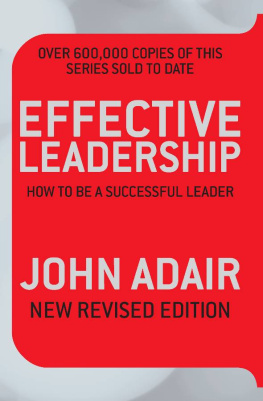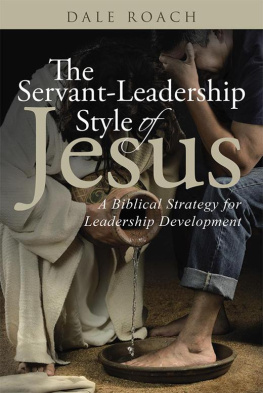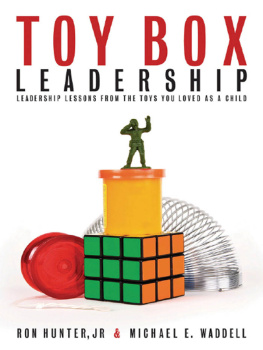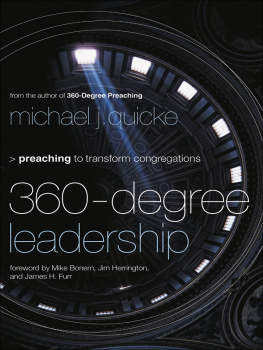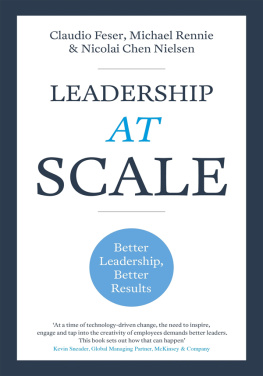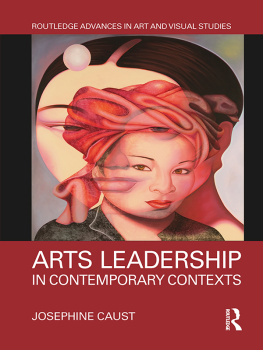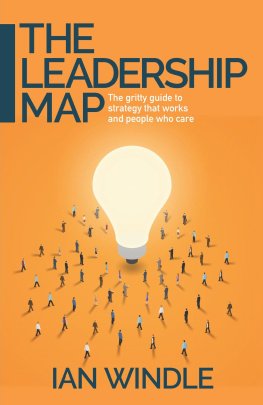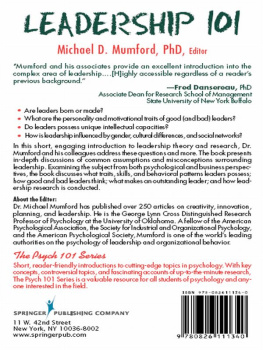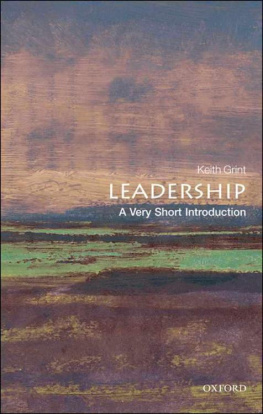Michael Shiel - Leadership
Here you can read online Michael Shiel - Leadership full text of the book (entire story) in english for free. Download pdf and epub, get meaning, cover and reviews about this ebook. year: 2011, publisher: Oak Tree Press, genre: Business. Description of the work, (preface) as well as reviews are available. Best literature library LitArk.com created for fans of good reading and offers a wide selection of genres:
Romance novel
Science fiction
Adventure
Detective
Science
History
Home and family
Prose
Art
Politics
Computer
Non-fiction
Religion
Business
Children
Humor
Choose a favorite category and find really read worthwhile books. Enjoy immersion in the world of imagination, feel the emotions of the characters or learn something new for yourself, make an fascinating discovery.
- Book:Leadership
- Author:
- Publisher:Oak Tree Press
- Genre:
- Year:2011
- Rating:4 / 5
- Favourites:Add to favourites
- Your mark:
- 80
- 1
- 2
- 3
- 4
- 5
Leadership: summary, description and annotation
We offer to read an annotation, description, summary or preface (depends on what the author of the book "Leadership" wrote himself). If you haven't found the necessary information about the book — write in the comments, we will try to find it.
Leadership is a fundamental aspect of putting strategy to work. It is a non-optional imperative in creating the future. This ebook explains the 7 As of practical leadership.
Leadership — read online for free the complete book (whole text) full work
Below is the text of the book, divided by pages. System saving the place of the last page read, allows you to conveniently read the book "Leadership" online for free, without having to search again every time where you left off. Put a bookmark, and you can go to the page where you finished reading at any time.
Font size:
Interval:
Bookmark:
Bennis, W., Parikh, J., and Lessem, R., (1994). Beyond Leadership, Oxford: Blackwell.
Gerstner, L. (2002). Who Says Elephants Cant Dance?: Inside IBMs Historic Turnaround, London: Harper Collins.
Heifetz, R. A. (1994). Leadership Without Easy Answers, Cambridge, Mass: Belknap Press and Harvard University Press.
Kotter, J. (1999). John P. Kotter on What Leaders Really Do, Boston: Harvard Business School Press.
Schein, E.H. (1995). Organizational Culture and Leadership, San Francisco: Jossey-Bass.
Weick, K. and Sutcliffe, K. (2001). Managing the Unexpected: Assuring High Performance in an Age of Complexity, San Francisco: Jossey-Bass.
Michael Shiel is a management specialist at IMI, where he teaches programmes in the area of strategy and leadership. He is an adjunct faculty member at University of San Diego, California, where he contributes to the doctoral programme in leadership. He is also a member of the Value Innovation Network based at INSEAD in Paris, where he participates in the development of novel practical and theoretical approaches to the strategic growth of firms. He holds an MBA in International Business from Fordham University (New York) and a Doctorate in Management from University of Hertfordshire for work on the application of Complexity Theory to the development of strategic leadership.
At the time of original print publication, Marion OConnor, John Cullen and John Mangan were Management Researcher, Senior Management Researcher and Director of Research respectively at IMIs Centre for Management Research and the editors of the IMI Handbook of Management, on which this ebook is based.
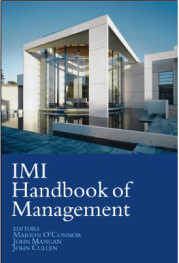
Leadership is extracted from the IMI Handbook of Management (ISBNs 978-1-86076-2925 hardback, 978-1-86076-293-2 paperback), edited by Marion OConnor, John Cullen and John Mangan, and published by Oak Tree Press, www.oaktreepress.com, in association with IMI).
The titles in this ebook series include:
- Managing Your Time.
- Getting Things Done.
- Managing Stress & Your Health.
- Planning Your Career.
- Motivating Others.
- Building Effective Teams.
- Negotiating Effectively.
- Facilitating Meetings & Chairing Discussions.
- Managing People.
- Managing Customers.
- Presentation & Communication Skills.
- Internal Communications.
- Assertiveness.
- Influencing Others.
- Gathering Business Information.
- Business Writing.
- Managing in Changing Times.
- Managing Outsourcing.
- Doing Business Strategy.
- Leadership.
Oak Tree Press develops and delivers information, advice and resources for entrepreneurs and managers. It is Irelands leading business book publisher, with an unrivalled reputation for quality titles across business, management, HR, law, marketing and enterprise topics.
In addition, through its founder and managing director, Brian OKane, Oak Tree Press occupies a unique position in start-up and small business support in Ireland through its standard-setting titles, as well training courses, mentoring and advisory services. Oak Tree Press is comfortable across a range of communication media print, web and training, focusing always on the effective communication of business information.
Oak Tree Press, 19 Rutland Street, Cork, Ireland.
T: + 353 21 4313855 F: + 353 21 4313496.
E: .
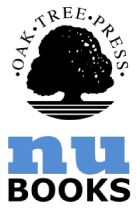
- Understand what constitutes leadership.
- Learn how to develop leadership in your organisation.
- Identify the organisational elements that contribute to effective leadership development.
The problem with leadership is that it sounds like it is a good thing in itself: a worthy thing to develop sometime, but right now we have a business to run, and so we pay little real attention to it.
This is because leadership is often described in heroic terms: a demi-god is inspired with a vision of the way forward, which is unavailable to the rest of us. This vision is then transmitted in a kind of supersalesmanship to grateful recipients (known as followers) who, overawed by its brilliance and originality, gladly put it into effect.
There is just one little problem: life is not like that. This is the cartoon version of leadership. Real day-to-day leadership is a lot more mundane and, at the same time, a lot more complex.
To figure out what real practical leadership is, it is helpful to understand what it is for. Think about this: your shareholders are concerned that their money is achieving the best possible return, bearing in mind the level of risk they are taking. So, one of the measures they might use to judge the performance of your firm is return on capital employed (ROCE). They want to be assured that they are getting the most out of the firms assets, which they have already paid for. If you want to get more capital for the firm, you will have to convince them that they will get an adequate return on that too.
The people in your firm constitute another asset, but it does not appear on the balance sheet and so we are tempted to pay less attention to the return the firm gets on them. If you look at your sources of competitive advantage, you may see a strange irony in this practice. In the 21st century, access to financial capital is seldom a real competitive advantage; with global capital markets glutted and constantly in search of opportunity, its a buyers market; its the people with the ideas who are in demand. Equally, access to capital equipment is no real source of advantage either; for example, the most profitable airlines in the world have access to the same aircraft from the same two major manufacturers as do the chronic loss-makers. So what makes the difference? Over the course of the last century, the competitiveness of firms has increasingly depended on the people in them, and correspondingly less on privileged access to finance, machinery or raw materials.
This is almost a reversal of the situation in the great industrial era; at that time, the idiosyncratic and individualistic nature of workers was an impediment to the efficient functioning of the enterprise. Employees had to be homogenised, controlled and, above all, measured. In effect, they became a commodity. Management thinkers at the start of the 20th century believed in the necessity of standardising work and removing the opportunities for creativity and individual initiative; this was the sole preserve of a superior being at the top of the organisation. By the start of this century, finance and equipment had been commoditised and the role of people had become critical to the survival and prosperity of firms.
The problem that this poses is that many of our approaches to management belong to an earlier era. We still pay attention to measures such as return on financial capital, and rightly so. But the big strategic question for any company boss is: Are you paying attention to your principal competitive asset? To the one aspect of your firm that can set you apart from all the others in your market, and prevent you from being a me too firm with, at best, average industry returns?.
Of course, you may say that superior products and service are what will create superior performance, but where do you think they come from? Where do you think the next generation of products and services will come from, as your competitors imitate the best aspects of your current offering and, in the process, threaten to eat your lunch.
Font size:
Interval:
Bookmark:
Similar books «Leadership»
Look at similar books to Leadership. We have selected literature similar in name and meaning in the hope of providing readers with more options to find new, interesting, not yet read works.
Discussion, reviews of the book Leadership and just readers' own opinions. Leave your comments, write what you think about the work, its meaning or the main characters. Specify what exactly you liked and what you didn't like, and why you think so.


